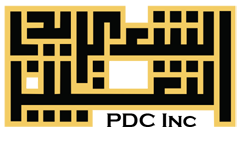
Turkish Elections: A Divided Electorate, a Consistent Victor
In a high-stakes election on June 24th, President Recep Tayyip Erdogan won his second consecutive term of the Turkish presidency and maintained the Justice and Development Party (AKP) majority in parliament. In the first ever simultaneous executive and legislative elections, Erdogan secured 53 percent of the vote, coming far ahead of his principal competitor Muharrem Ince of the Republican People’s Party (CHP) who won 31 percent, according to Turkey’s Supreme Election Board after counting 97 percent of the votes. The critical election, which had an 87 percent turnout, came after a referendum in April 2017 that generously expanded executive powers. The narrowly won referendum permitted constitutional amendments that abolished the position of Prime Minister, curtailed parliamentary powers, and granted the president the ability to appoint vice presidents, ministers, high level officials, and senior judges.
Addressing cheering crowds Sunday night, Erdogan thanked his loyal supporters and expressed his hopes for a bright, democratic future for Turkey, stating,“Our democracy has won, the people’s will has won, Turkey has won.”
Critics of Erdogan accuse him of consolidating power and shaping the government into a competitive authoritarian state. His opposition gained immense support from the public, particularly secular Turks who feel marginalized by his aims to create a “pious generation” and reinvigorate the nation’s Islamic identity, one that was abandoned with Kemal Ataturk’s rise to power after the fall of the Ottoman Empire in 1923. His harsh stances against Western powers and his vision to transform Turkey’s secular identity are perceived as setbacks to modernity and obstacles to long sought European Union membership.
During the campaign trail, Ince’s popularity threatened Erdogan’s chances of sweeping the elections. He ran on a platform condemning Erdogan’s “one-man rule” and promising to vest state power in the parliament. Erdogan oppositionists were enlivened by Ince’s pledges to end the persecution of journalists, to send Syrian refugees back home, and to ensure that secularists and religious citizens are treated equally by state policies.
While Erdogan’s objectors are blaring, his supporters are just as loud. His base is mainly concentrated among lower-class and religiously conservative Turks who feel that they were pushed to the periphery with rapid secular and modern changes in the past. Over time, the lives of those living in the “periphery” benefitted from Erdogan’s rule. Since he became PM in 2003, Turkey witnessed a spike in public infrastructure, increased investment in education, and an improvement in healthcare and transportation systems. Additionally, his commitment to reviving Islamic culture resonates with those who believe traditional values are suffocating under the rigorous drive to be a modern competitor in an increasingly globalized world. Erdogan’s supporters express unyielding support despite the leader’s recent adoption of more restrictive policies, showing a common trend among illiberal democratic states: economic and social needs easily overpower political ones. Why fight for democracy when you still do not have the means to put food on the table? Once those needs are secure, why threaten your chances of maintaining them?
The approved constitutional amendments will take effect this term, marking the transition of Turkey from a parliamentary to a presidential system of government. Erdogan and those who voted for the changes argue that a presidential government will strengthen the Turkish state and lead to greater stability in the country. Coming in with newfound power, Erdogan’s commitment to Turkey will be tested as opposers will watch closely for any attempts to abuse executive power.
Ince conceded defeat Sunday night but did not hold back his skepticism of Erdogan and the elections. He warned of oncoming dictatorship and called the run-up to the elections “unfair” after facing limited coverage on state media outlets. However, he did not dispute the results and expressed his hopes that Erdogan would be “a president for us all.” Surrounded by a sea of red and white, fists pounding in the air, and the thunderous chants of his name on Sunday, Erdogan stood as a victorious warrior does in front of his people: proud, vigorous, and filled with forceful zeal. He vowed to make Turkey an “example for the rest of the world” and to liberate Syria and the world’s oppressed. Erdogan’s economic success has shown him to be an effective leader, but his new presidential role will test his political virtues and his ability to prove he is deserving of this phenomenal loyalty.
—————————————
By Yakin Ouederni (Program Associate at People Demand Change Inc.)
